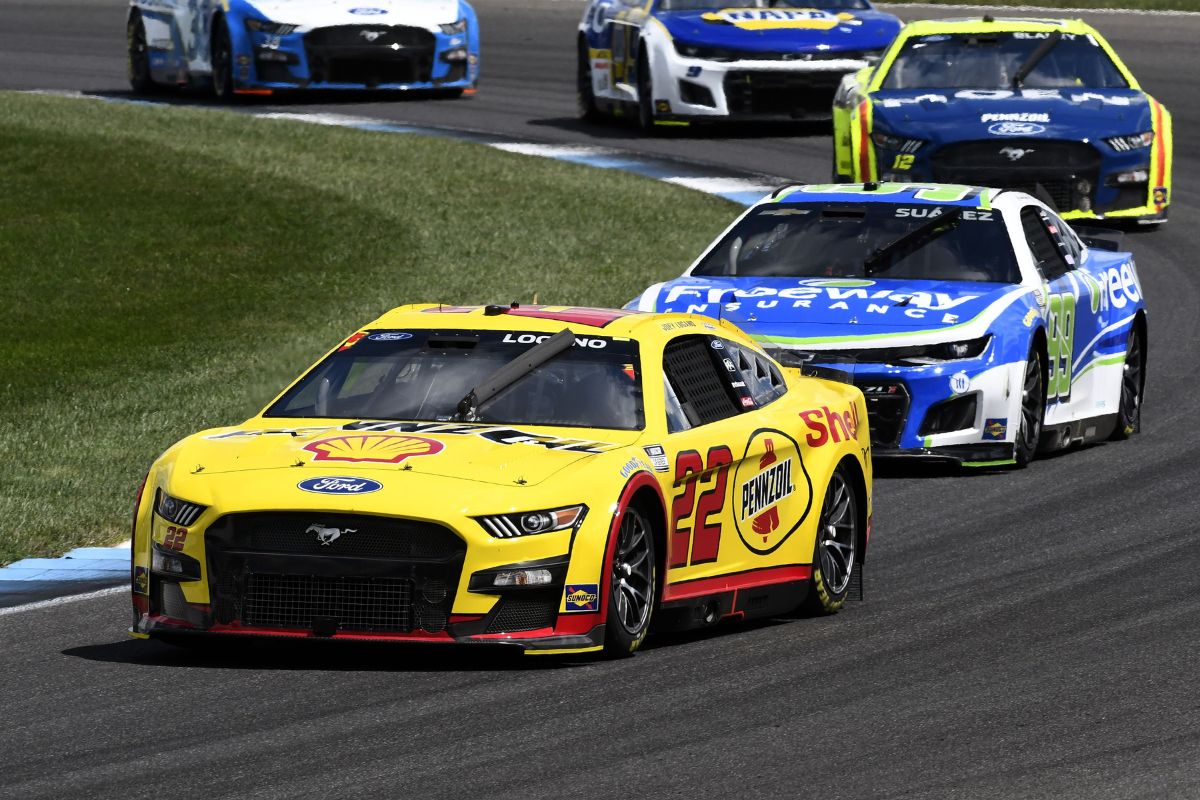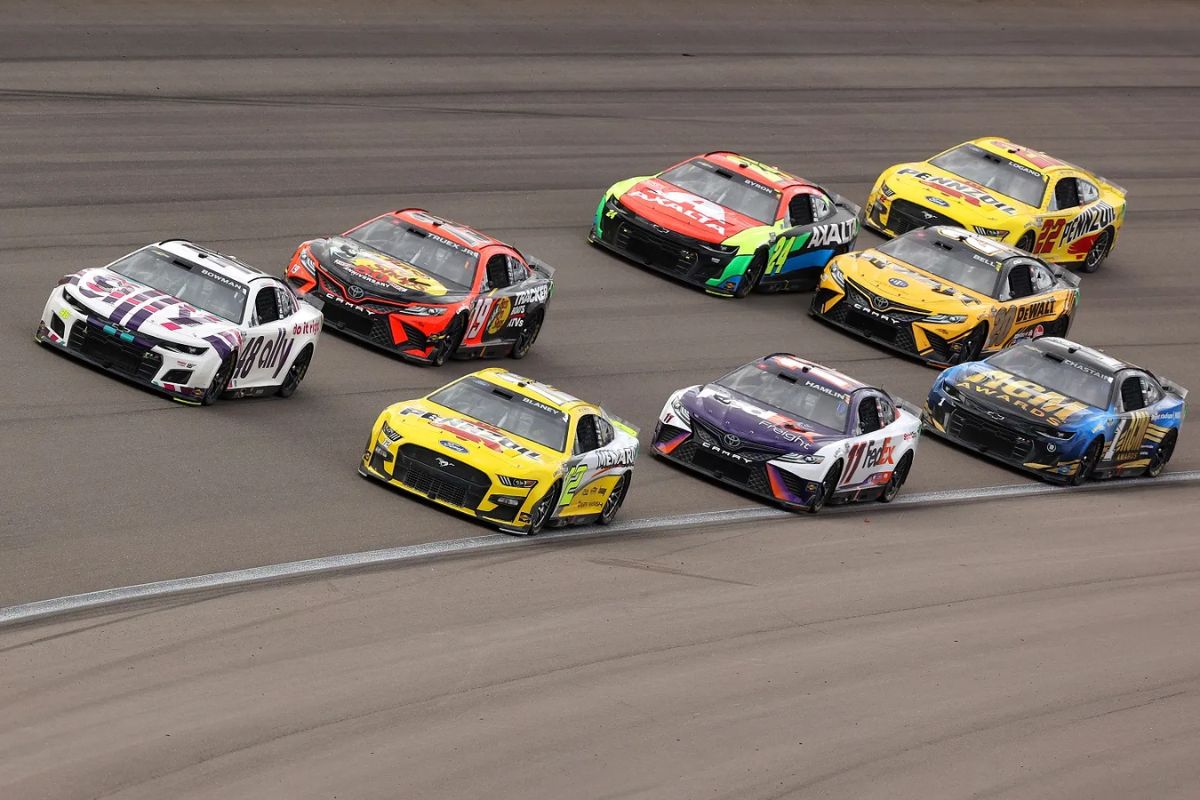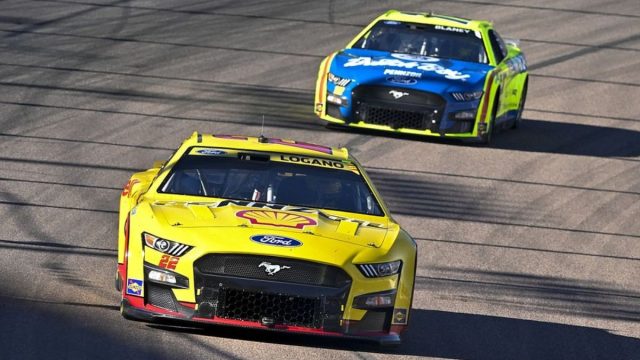Ford’s Bad Performance: As the current season unfolds, Ford finds itself in a difficult position, lagging behind its industry rivals in key performance. This troubling course is highlighted by a series of dull race finishes, which contrast with the strategic victories and technological advancements flaunted by competitors. This gap not only exposes potential shortcomings in Ford’s innovation pipeline and strategic execution but also raises critical questions about the company’s ability to adapt in a rapidly evolving automotive landscape.
Key Takeaways
- Ford faces a winless streak in the first 9 races of the 2024 NASCAR season.
- Competitors have outperformed Ford in aerodynamics, fuel efficiency, and tire wear.
- Ford’s Mustang Dark Horse struggles with speed and handling issues.
- Rival teams have advanced in driver-assist technologies and strategic race planning.
- Urgent need for Ford to change strategies and enhance team synergy to remain competitive.
Ford’s Struggle Continues in 2024 NASCAR Season
Despite introducing the Mustang Dark Horse, Ford’s performance remains dull, with not a single victory in the first nine races of the 2024 NASCAR season. This unexpected outcome demands a thorough analysis of the factors contributing to Ford’s disappointing performance.
Upon closer examination, several strategic missteps become apparent. To begin with, the integration of the Mustang Dark Horse into the competitive landscape might have faced initial challenges, potentially in aerodynamic efficiency or powertrain performance. This hypothesis is supported by observable deficits in Ford’s speed and handling on superspeedways and short tracks.
Chevrolet and Toyota have incrementally improved their vehicles’ performance metrics. These enhancements span across important areas such as fuel efficiency, tire wear optimization, and advanced driver-assist technologies. The comparison of Ford’s new model against these continuously evolving racing platforms may have exposed the Mustang Dark Horse’s developmental shortcomings.

Concerns Mount as Ford’s Winless Streak Persists
As Ford’s winless streak in the 2024 NASCAR season extends, growing concerns among experts and fans highlight the necessity for strategic adjustments. Despite individual moments of brilliance, such as Brad Keselowski’s second-place finish at Texas and Ryan Blaney’s consistent top-five appearances, the overall narrative remains troubling.
Detailed analysis suggests that while Ford drivers are not lacking in talent, there may be underlying issues with car setup and adaptability to race-day conditions. Keselowski’s navigation through a chaotic field to secure a high finish indicates potential that is not being fully leveraged. Similarly, Blaney’s frequent top-five finishes signal a competitive edge that fails to resulted in a win, possibly pointing to strategic missteps in race management or pit stop efficiency.
The necessity for Ford to innovate and adapt becomes more critical as the season progresses. This could involve a reevaluation of their engineering approaches, greater investments in technology, and possibly, a reshuffle in team strategies to better harness the capabilities of their drivers.
Scratching Heads: Ford’s Unprecedented Winless Streak
In 2024, Ford’s unexpected continuation of a unsuccessful streak through the first nine races has puzzled NASCAR experts and fans. This drought marks a significant deviation from Ford’s historical performance, given it has been 14 years since they last encountered such an early-season slump.
Historically, Ford has been a strong competitor in NASCAR, leveraging cutting-edge technology and team coordination to secure victories. Therefore, the current season’s unfolding has not only been unexpected but also somewhat disconcerting for stakeholders within the motorsports community.
The absence of wins can be attributed to many factors, although without acquiring detailed performance analytics, one can speculate about potential areas of concern. These may range from inferior vehicle performance issues, perhaps tied to aerodynamics or powertrain efficiency, to less tangible factors such as team morale or strategic decision-making under pressure.

Analyzing Ford’s Performance: DBC Insights
The recent episode of ‘Door Bumper Clear’ offered critical insights into Ford’s ongoing challenges in the NASCAR series, highlighting key performance metrics and strategic concerns. The analysis emphasized a significant gap in performance metrics between Ford and its chief rivals, particularly Chevrolet.
Freddie Kraft pointed out that while Ford’s Joey Logano has led the most laps for Ford with a total of 177, this figure in comparison to Kyle Larson’s 531 laps led in a Chevrolet. This contrast not only increase Ford’s struggles but also showcases the competitive edge that Chevrolet has gained.
“I’m not so concerned about the winless streak than about the fact that they’re not in contention to win. It’s not like they’re just getting it. You were obviously in contention being in second. But you were not a second-place car yesterday.”
“There’s four guys right now in the playoffs in Fords, like if it ended today…My concern would be not only have they not won, not easy to win, but they really haven’t been in a position to win other than maybe the first two.”-Freddie
| Driver | Team | Laps Led |
|---|---|---|
| Kyle Larson | Chevrolet | 531 |
| Joey Logano | Ford | 177 |
| Other Ford Drivers | Ford | Few |
| Other Chevrolet Drivers | Chevrolet | Many |
The discussion by T.J. Majors about Keselowski securing second place in Texas also brought a fleeting highlight to Ford’s season, yet it emphasizes the inconsistency and the need for more good performances across the board.
“The end of the year completely fits Ryan Blaney. All his best tracks are the last three tracks of the year. I could easily see one of them guys getting hot again. You never know, maybe Brad wins 2-3 or whatever.”-Majors
Hope for Ford’s Comeback: Lessons from 2023 Season
Despite the challenges highlighted previously, Ford’s late-season surge, marked by Ryan Blaney’s trio of victories, presents an opportunity to extract valuable lessons for a stronger future performance. This belated success emphasizes the potential for recovery and dominance in the competitive racing circuit.
“If you would have looked at us last year, you would have never thought a Ford was going to win a championship and then it did.”
“Hopefully when it matters, Ford is going to be strong.”-Briscoe
- Consistency in Vehicle Performance: The importance of consistent vehicle performance throughout the season cannot be overemphasized. Ford must investigate the technical and mechanical enhancements that contributed to Blaney’s late victories and apply these improvements across the board.
- Driver Resilience and Focus: Blaney’s resilience in overcoming a slow start demonstrates the mental and physical fortitude required. Ford should foster this mindset across their team.
- Enhanced Team Collaboration: The synergy between drivers, engineers, and support staff during the comeback phase was notable. Enhancing this collaborative environment from the beginning could yield better results.

News in Brief: Ford’s Bad Performance
Ford’s ongoing challenges in the 2024 NASCAR season highlight the necessity for strategic adjustments in aerodynamics, powertrain, and race tactics. The persistent winless streak not only intensifies the need to innovate but also emphasizes the crucial requirement for adopting lessons from past performances. Effective implementation of these strategies could potentially revival in competitiveness.
Our Reader’s Queries
Q: Does Ford participate in NASCAR?
A: Since its debut in the NASCAR Cup Series in 2019, the Mustang has secured a manufacturer’s championship and dominated in 2020 with a series-best 18 victories. In 2022, Joey Logano secured a driver’s championship with the Mustang.
Q: Does Ford make NASCAR engines?
A: Builders: Chevrolet: ECR Engines, Hendrick Motorsports. Ford: Roush-Yates Engines. Toyota: Toyota Racing Development
Q: How many races has Ford won in NASCAR?
A: Chevrolet has been the most successful manufacturer as of 2023, with 851 race wins and 42 manufacturers championships. Ford ranks second with 728 victories and 17 manufacturers championships.
Also Read: Ford’s Win Drought Deepens: Can Ryan Blaney Break the Curse?
